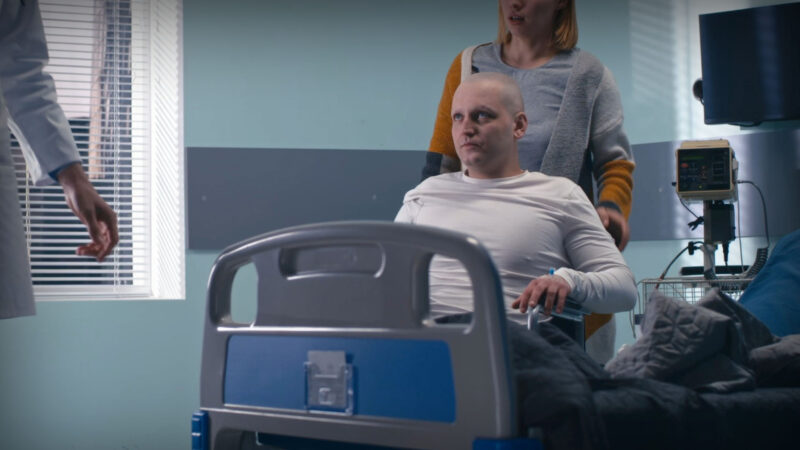COVID-19 has brought unprecedented focus on the Medical Technology, Biotechnology and Pharmaceutical (MTP) sector; highlighting the importance of research and development, new technologies and advancements to navigate human health challenges. This coupled, with the importance of sovereign capability and a robust supply chain to support the provision of essential MTP products. This has created unique opportunities to invigorate and invest for a stronger sector, which in 2019 supported 70,000 Australian Jobs and contributed more than $5B in Gross Value Added (GVA) to the Australian Economy.
As Australia’s growth centre for the sector, MTPConnect is responsible for delivering the $32M Researcher Exchange and Development within Industry (REDI) initiative, funded by the Medical Research Future Fund (MRFF). MTPConnect partners with research, training and industry organisations to increase skill levels and aid workforce development for the MTP sector nationally.
Skilled labour, in particular skilled in the manufacture of MTP products, namely competency in Good Manufacturing Practice (GMP), was identified as one of the key priorities, according to Jarrod Belcher, Director of the REDI Program at MTPConnect. Through a competitive process, MTPConnect selected additional industry training providers to deliver new programs addressing key skills gaps in the sector workforce.
Launched in September 2022, one of these programs is GMP Uplift developed by the Centre for Biopharmaceutical Excellence (CBE). CBE bring experience across large and small Biologics, Pharmaceuticals and Regenerative Medicine companies, both in consulting and GMP related enterprise training. CBE staff also have extensive experience in GMP operations, compliance, auditing and QMS design, a wide industry network for guest lecturers and readily available case studies.
In developing the training, CBE Director Steve Williams states, “The Federal Government took the initiative to commence this uplift program because they recognised that bringing manufacturing back into Australia was a national imperative. In order to do that, they needed to make sure that the human resources were available and were knowledgeable around compliance in GMP, to make us internationally competitive.”
CBE GMP Uplift Programs provide participants with a real-world perspective on Good Manufacturing Practice (GMP) and are designed to assist with the interpretation and application of GMP into practice, for those involved in human health products. CBE brings strong technical credentials, with experience across large and small Biologics, Pharmaceuticals and Regenerative Medicine companies, both in consulting and GMP related enterprise training. Collectively the CBE staff delivering the training; Steve Williams, Justine Mann, Maurice Parlane, Andrew Watson and Jeff Davies have over 200 years experience in GMP.
The CBE GMP Uplift training programs have been developed with the help of a consortia of associations; ARCS Australia, Translational Research Institute Australia (TRI T3 Cleanrooms), University of Technology Sydney (BIF UTS), Merck Life Sciences and CBE Pure Solutions. The program is available for entry level staff and for those with more than 12 months industry experience:
– Essential GMP Program designed for entry level employees (new starts up to 12 months). A 5-day equivalent course, designed for participant flexibility and to upskill in core GMP principles.
– Advanced GMP Program, for those working in a GMP role (12 months+) looking for an in depth understanding of the critical areas that underpin GMP compliance in practice.
Students who have taken training programs in September and October have commented favourably on the range of case studies, the depth of material, real world examples and hands on experience.
Interviews filmed at the BioProcessing Network Conference 2022, in Sydney.
You Might also like
-
Medicinal cannabis in Australia Update
According to the Australian Journal of General Practice, published by the Royal Australian College of General Practitioners, more than 130,000 medicinal cannabis approvals have been issued in Australia to date, mostly by general practitioners, with approximately 65% of these to treat chronic non-cancer pain. Despite robust supportive data from animal models, current clinical trial evidence for THC and CBD efficacy in chronic pain is incomplete. In their prescribing decisions, doctors must balance patient demand and curiosity with caution regarding potential risks and limited efficacy.
Australian Health Journal met with 3 speakers at the recent ARCS22 Conference providing an update on medicinal cannabis. The discussion with the speakers now centres on affordability and access.
-
Sharing the same goals in value-based procurement
Value-based procurement (VBP) is a journey, not a sprint. It’s about putting the patient at the centre of quality affordable healthcare through changes in procurement practices for medical technologies. Patient outcomes drive value and sustainability, not just price. The bigger picture indicates that VBP will create system cost saving through benefitting patients, rather than trying to attain the reverse – a win-win outcome.
-
Adjunct Professor Alanna Geary talks Nursing Leadership
Adjunct Professor Alanna Geary FACN,
Chief Nursing & Midwifery Officer,
Metro North Hospital Hospital & Health Service, Queensland
talks Nursing Leadership



